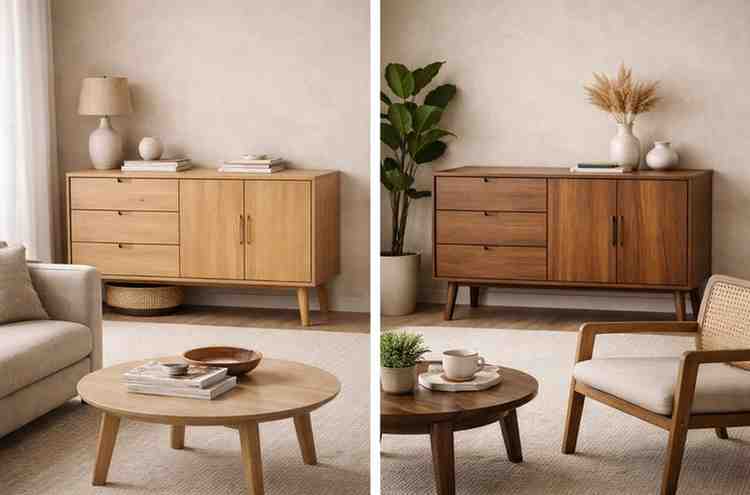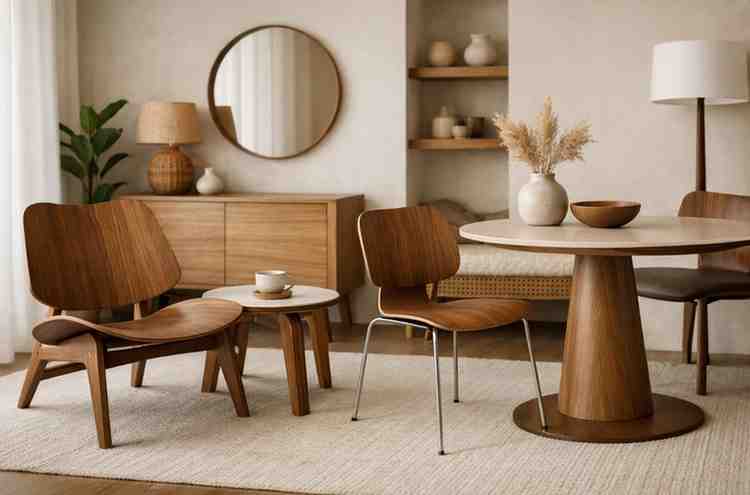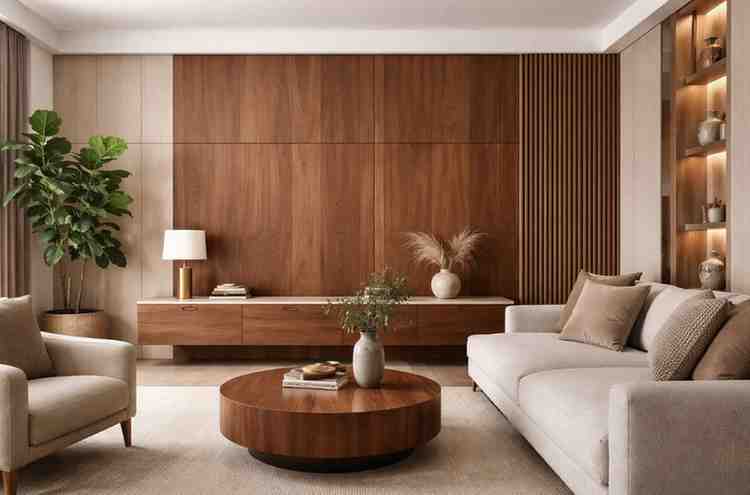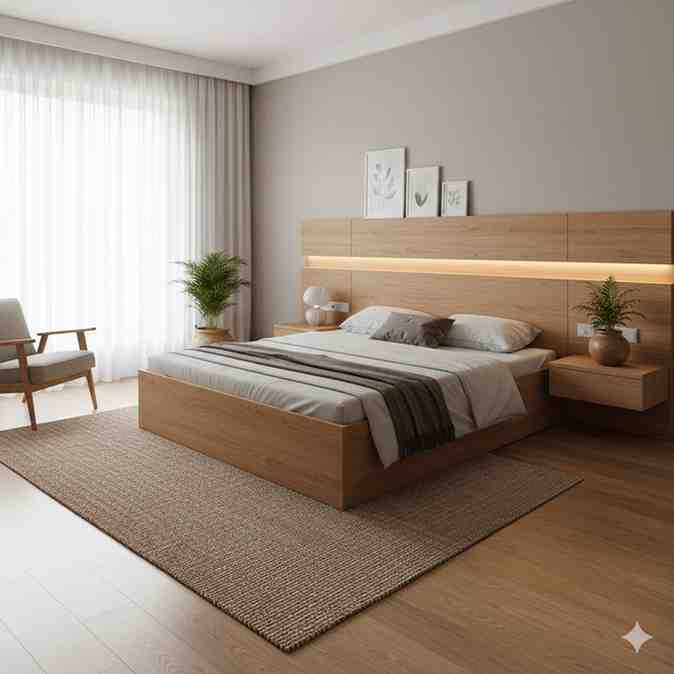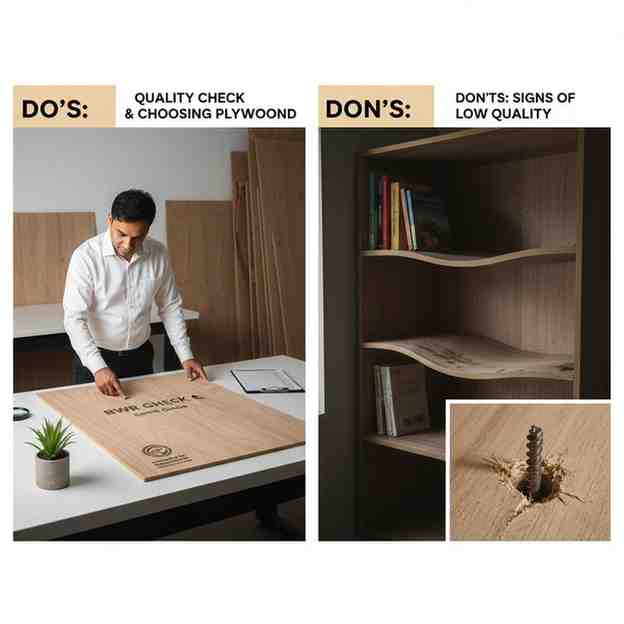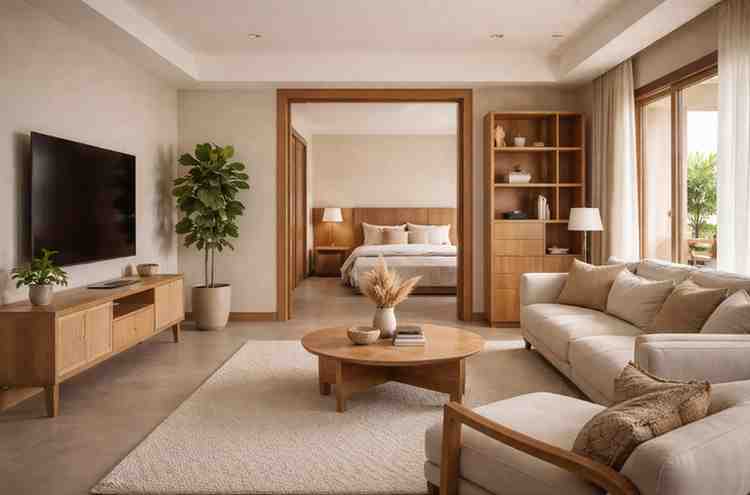Termite-proof Plywood is a specifically constructed kind of plywood meant to provide long-term defence against the continual danger of termite infestations. These are manufactured using careful procedures that greatly increase their durability, in contrast to regular plywood, which is nevertheless susceptible to these damaging bugs. To accomplish this endurance, sophisticated chemical treatments and preservatives are infused throughout the production process.
As a result, termite-proof plywood not only preserves the strength and integrity of wooden structures and furnishings but also extends their lifespan considerably, making it a smart and reliable choice for both residential and commercial applications in areas prone to termite activity.
Table of contents
How Does Termite-Proof Plywood Benefit You
Why are Termite-Proof Plywoods Important
How Do Termite-Proof Plywoods Provide Protection
Where Would Termite-Proof Plywoods Fit The Best
How Choosing the Right Grade Proves to be Beneficial
How Does Termite-Proof Plywood Benefit You
Customers prefer termite-proof Plywood because of the various benefits it provides, which give them an edge over other types of plywood, making it a popular choice among customers. While the initial cost of termite-proof plywood may be higher than standard plywood, it saves you money in the long term by eliminating the need for repeated repairs or replacements. The strength and stability of wooden structures are maintained with the reduction of termite attacks, ensuring safety and durability over time.
These are suitable for various environments, as the resistance to moisture makes termite proof plywood a better option to be used in kitchens and bathrooms. termite proof plywood is engineered to resist pest infestations inherently, eliminating the need for frequent inspections or treatments. This built-in protection ensures that your wooden structures remain intact without constant monitoring.
Why are Termite-Proof Plywoods Important
By being treated with specialised chemicals and preservatives during manufacturing, termite-proof plywood creates a protective barrier that either repels or kills termites upon contact. In regions where termite infestations are common due to climate or environmental factors, using termite-resistant plywood is not just a precaution, it’s a necessity. Termites can cause significant damage to wooden structures, including beams, floors, and furniture, often going unnoticed until the destruction is severe. Termite-proof plywood serves as a barrier against these pests, preventing costly repairs and replacements.
termite proof plywood is suitable for various applications, including furniture, flooring, wall panelling, and outdoor structures. Its versatility makes it an excellent choice for multiple projects, ensuring durability and protection throughout your home. Many manufacturers of termite proof plywood adopt sustainable practices in their production processes. By choosing this type of plywood, you can help with environmental conservation while protecting your home.
Protect your investment: Explore the long-term benefits of termite-proof plywood today!
How Do Termite-Proof Plywoods Provide Protection
These plywoods are engineered with specific chemicals and materials during their manufacturing process to resist termite attacks, making it suitable for construction, furniture making, and interior design. The materials used in termite-proof plywood are a feature that makes it significant.
- Chemical Treatments: termite proof Plywoods are infused with termiticides or insecticides that deter termites. The common chemicals used in the manufacturing of such plywood are Boron Compounds, Copper-based Compounds, Chlorpyrifos, and Imidacloprid.
- Pressure Treatments: Plywoods are placed in a pressure chamber where preservatives are forced deep into the wood fibres. This process ensures long-lasting protection against termites and other pests.
- Natural Resistance: Some wood possesses natural properties that repel termites, such as the presence of natural oils and resins. Plywoods made from these species or laminated with their veneers are often effective in protecting against termites and extending the lifespan of the plywood.
Say goodbye to costly termite damage – discover the strength and durability of termite-proof plywood!
Where Would Termite-Proof Plywoods Fit The Best
Since termite proof plywoods are versatile because of their vast features, it is useful in several spaces, in homes as well as workplaces, where they would be highly effective in withstanding termite infestation and thus reducing frequent repairs and maintenance.
- Furniture and Cabinetry: Wardrobes, Cabinets, and Shelving Units attract termites the most, and thus making them ideal to be built with termite-proof plywood, ensuring durability and longevity.
- Kitchen and Bathroom Interiors: Using termite proof plywood in moisture-rich environments such as kitchens and bathrooms for cabinets, countertops, and vanities proves effective in resisting termites.
- Flooring and Wall Panelling: Such plywoods maintain the structural integrity and aesthetic appeal of flooring and wall panels, making them look appealing to the eye over time.
- Outdoor Structures: They are suitable for decks, pergolas, and garden furniture, they withstand external elements while preventing termite damage.
How Choosing the Right Grade Proves to be Beneficial
Different grades of plywood are available for different purposes. Considering the environment and application, choosing the right termite proof plywood can work wonders and prove to be highly cost-effective, and make your interior space look stylish, providing you with the best quality money can buy.
- Structural Grade Plywoods: High-quality structural plywood uses waterproof, termite-resistant adhesives to bond the veneers, which prevents moisture ingress and insect colonisation in the glue lines and core gaps, making it harder for termites to nest.
- Moisture-Resistant Plywoods: MR plywood is designed to resist moisture and humidity, making it suitable for interior applications where occasional dampness may occur, as a result of which termites gather.
- Marine-Grade Plywood: Marine-grade plywood is the highest quality plywood, designed for applications requiring superior strength and resistance to moisture and environmental conditions, resisting the termites that are attracted by such conditions.
Using termite-proof plywood is extremely vital for today’s age of modern houses and workplaces because of its advantages and features. It is eco-friendly and cost-effective, and offers termite resistance with a long lifespan while also adding a bit of flair to its surroundings with its sleek and stylish looks and design. Such plywood should be a necessity for every home decor enthusiast, as it is a sound decision for any space to invest in termite-proof plywood.
To browse through and learn more about the different types of plywood and which would suit your needs the best, head to Wigwam Ply.
FAQs
1. How can plywood be termite-proof?
During production, termite-proof plywood is coated with specific chemicals and preservatives that either kill or repel termites upon contact.
2. What are the long-term benefits?
Using termite-proof plywood will pay off long-term. It increases the lifetime of wooden constructions, keeps their strength and stability, and helps to avoid expensive repairs and replacements resulting from termite damage.
3. What are the applications for termite-proof plywood?
Particularly in locations prone to termites or dampness, it is ideal for furniture, cabinets, kitchen and bathroom interiors, flooring, wall panelling and outside constructions.
4. How does plywood’s production process render it termite-proof?
This calls for pressure treatments, forcing preservatives well into the wood fibres, and chemical treatments, infusion of termiticides like Boron Compounds.
5. Does the termite-proof plywood’s grade affect anything?
Indeed, different grades—structural, moisture-resistant (MR), marine-grade, offer differing degrees of strength and resistance to moisture and termites, therefore the appropriate choice is very important for particular conditions and uses.


